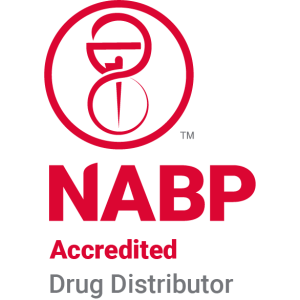Specialized nutrition for dialysis care
Understanding the Role of Diet in Dialysis
For individuals undergoing dialysis, nutrition is a cornerstone of effective treatment. The kidneys play essential roles in regulating bodily functions, and when they are compromised, dialysis assists by removing waste and excess fluid from the blood. However, patients must adhere to unique dietary guidelines to support overall health and improve treatment outcomes. This article explores the complex nutrition protocols essential for maintaining health during dialysis, highlighting the crucial roles of protein, sodium, potassium, phosphorus, and fluid management.
The Cornerstones of a Dialysis Diet

What is the special diet for dialysis patients?
Patients on dialysis must closely follow a specialized diet to manage their health effectively. A crucial aspect of this diet is a higher intake of high-quality protein. Recommended sources include lean meats, poultry, fish, and eggs. In fact, dialysis patients may need to consume 8-10 ounces of protein daily, as their bodies require additional protein to maintain muscle strength and repair tissues.
To manage blood pressure and prevent fluid retention, sodium intake must be limited to under 2300 milligrams per day. This necessitates avoiding processed foods, which are often high in sodium, and being vigilant about reading nutrition labels.
How is fluid intake managed in a dialysis diet?
Fluid intake is also a significant concern for dialysis patients. For those undergoing in-center hemodialysis, fluid consumption typically ranges between one to two liters, depending on urine output. This limitation helps to prevent complications like swelling and cardiovascular strain. In contrast, patients on home dialysis may have more flexibility, yet individual fluid needs should still be strictly monitored.
Why is mineral balance important in a dialysis diet?
Maintaining a proper balance of minerals is vital. Potassium and phosphorus levels must be carefully controlled, as incorrect levels can lead to serious health issues. Daily potassium intake is typically recommended at 2000-3000 mg for patients on hemodialysis, while phosphorus should be restricted, as high levels can weaken bones and create additional health problems. Dialysis patients often work with dietitians to personalize their dietary restrictions and ensure they meet their nutritional needs while avoiding detrimental health effects.
| Nutrient | Recommended Intake | Dietary Considerations |
|---|---|---|
| Protein | 8-10 ounces (225-280 grams) daily | Focus on high-quality sources like lean meats, fish, and eggs |
| Sodium | < 2300 mg | Avoid processed foods; check labels for sodium content |
| Potassium | 2000-3000 mg | Restricted; varies based on individual blood levels |
| Phosphorus | Limited | Manage intake from processed foods and potentially use binders |
| Fluid Intake | 1-2 liters (in-center) | Should be monitored to prevent fluid overload |
Navigating Dietary Restrictions

What foods should dialysis patients avoid?
Dialysis patients must be vigilant about their dietary choices to protect their health. Foods high in potassium, phosphorus, and sodium should be avoided. Notable culprits include:
- Potassium-rich foods : avocados, bananas, oranges, and potatoes that can elevate potassium levels, leading to serious heart complications.
- Phosphorus-loaded items : processed meats and dark-colored sodas can disrupt bone health due to their high phosphorus content.
- Sodium-intense products : canned foods and many packaged snacks, such as chips and pretzels, contain excessive sodium, which can contribute to fluid retention and hypertension.
- Dairy products : these often have high phosphorus levels, requiring careful consumption, and many whole wheat products also contribute significantly to sodium intake.
- Dried fruits : snacks like raisins and prunes should be limited as they can contain concentrated potassium.
Managing these dietary restrictions is essential for dialysis patients to prevent complications from kidney failure and improve overall health. Regular consultations with dietitians can help tailor food choices and manage nutrient intake effectively.
Managing Diabetes and Dialysis Through Diet

What dietary considerations should be made for dialysis patients with diabetes?
Dialysis patients with diabetes must navigate a complex diet that sustains kidney function while managing blood sugar levels. Here are some vital considerations:
- Sodium Control : Limit sodium intake to help control blood pressure and reduce excess fluid retention. Processed and high-sodium foods should be avoided.
- Potassium and Phosphorus Monitoring : These minerals must be closely monitored, as kidney health can be severely compromised. Foods low in potassium, such as berries and eggplant, are recommended, while high-phosphorus items like processed cheeses should be limited.
- Balanced Protein Intake : Protein needs increase during dialysis, which means patients may require more than their pre-dialysis intake. High-quality protein sources, like lean meats and eggs, should be prioritized. However, it’s essential to manage overall intake to prevent complications.
- Carbohydrate Choices : Focus on complex carbohydrates and fiber-rich foods to maintain steady blood sugar levels. Low-glycemic foods can help prevent spikes in blood glucose.
- Individualized Meal Planning : Collaboration with dietitians is crucial for tailoring a meal plan that addresses both diabetes and kidney health. This ensures that all dietary restrictions and nutritional needs are met without compromising health.
By focusing on these dietary adjustments, patients can effectively manage their diabetes and enhance their dialysis treatment outcomes.
Sample Diet and Meal Planning

What is an example of a diet chart for dialysis patients?
Dialysis patients require a specialized diet to manage their electrolyte levels and ensure kidney health. A sample diet chart could include foods rich in healthy fats, whole grains, and low-sodium fruits and vegetables. Here’s a more detailed meal planning example:
| Meal | Food Choices | Nutritional Highlights |
|---|---|---|
| Breakfast | 2 egg whites, 1 rice idli, coriander chutney | High in protein, low in sodium |
| Lunch | Lentils, 1 chapati, steamed cauliflower, leached potatoes, water or unsweetened tea | Balanced carbohydrates, protein, and fiber |
| Snack | Corn idli, sambar, mixed fruits (e.g., apples, grapes) | Moderate calories, hydration, and fiber |
| Dinner | Grilled fish, quinoa, steamed broccoli, and a green salad | Protein-rich, low in potassium and phosphorus |
This diet supports energy needs while keeping within the sodium, potassium, and phosphorus limits common for dialysis diets.
Nutritional balance and variety
It is essential for dialysis patients to incorporate nutritional balance into their meals. Each meal should prioritize:
- High-quality protein sources such as lean meats, fish, and eggs.
- Low-sodium options to help manage blood pressure and prevent fluid retention.
- Variety in fruits and vegetables, focusing on low-potassium selections like apples and strawberries, while avoiding high-potassium foods like bananas and tomatoes.
Consulting with a dietitian for tailored meal planning ensures that these dietary requirements are met while maintaining a satisfying and enjoyable diet, reflecting personal tastes and nutritional needs.
Kidney-Friendly Culinary Ideas

What are some dialysis diet recipes?
Here are some dialysis diet recipes that you might find enjoyable and suitable for a kidney-friendly diet:
- Chocolate Zucchini Brownies : These rich and fudgy brownies provide a delightful treat while staying mindful of sodium and phosphorus restrictions.
- Creamy Lemon Popsicles : A refreshing option that's easy to make, these popsicles offer a sweet and tart flavor without compromising on dietary needs.
- One-Pot Lentil Soup : This hearty soup is both comforting and nutritious, making it a perfect choice for cold days while being low in problematic nutrients.
- Cauliflower Herb Soup : Light and calming, this soup is ideal for a soft meal with plenty of flavor without overstepping dietary bounds.
- Mediterranean Quinoa Salad : Colorful and packed with fiber and vitamins, this salad serves as a vibrant side dish or a main course full of wholesome ingredients.
These recipes are designed to be low in sodium, protein, potassium, and phosphorus, making them ideal for individuals undergoing dialysis.
Choosing the Right Proteins

What is the best protein for dialysis patients?
Dialysis patients require high-quality protein sources to maintain or improve their albumin levels, ideally at 4.0 g/dL or higher. Here are some recommended protein sources:
- Lean Meats : Turkey and lean beef burgers, chicken, and fish provide substantial protein while helping to prevent anemia.
- Dairy Options : Cottage cheese and Greek yogurt are beneficial due to their lower potassium and phosphorus levels, supporting kidney health.
- Kidney-Specific Nutrition Drinks : Supplements such as Nepro and Suplena can be valuable for additional protein intake.
Supplementation options
In addition to dietary protein sources, dialysis patients might need supplementation to meet their daily protein requirements. These nutritional drinks are designed to provide concentrated protein while minimizing phosphorus and potassium levels. It’s essential to focus on both animal-based proteins and select plant-based sources, ensuring that processed meats high in sodium and phosphorus are avoided.
Monitoring protein intake and choosing the right sources can significantly enhance the health and well-being of patients undergoing dialysis.
Finding Balance Through Tailored Nutrition
Specialized nutrition tailored for dialysis care is a dynamic and personalized approach critical for success in managing health on dialysis. Continual collaboration with healthcare professionals and dietitians helps innovate meal plans that respect dietary restrictions while promoting enjoyment in eating. Emphasizing high-quality protein intake, diligent management of sodium, potassium, and phosphorus, as well as mindful fluid consumption, are pillars of this specialized diet. By adhering to these guidelines and remaining informed on meal options and nutrient requirements, dialysis patients can significantly enhance their quality of life.
References
- Hemodialysis and Your Diet - National Kidney Foundation
- [PDF] Nutrition and Hemodialysis - National Kidney Foundation
- ESRD | Kidney failure - American Kidney Fund (AKF)
- Nutritional Guidelines - Dialysis Patient Citizens Education Center
- Eating & Nutrition for Peritoneal Dialysis - NIDDK
- [PDF] Nutrition and Hemodialysis | UNC Kidney Center
- Diet & Nutrition | DaVita Kidney Care
- Nutrition - Dialysis Patient Citizens Education Center














